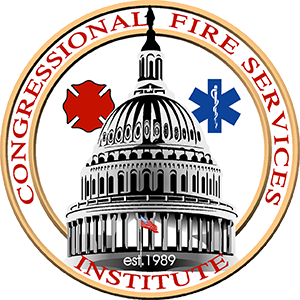White House Releases Fiscal Year 2020 Spending Proposal; Recommends Cuts to Fire Service Programs
(March 19, 2019) – On March 11th, the White House released President Trump’s Fiscal Year 2020 budget proposal. The $4.7 trillion spending plan includes $51.7 billion in funding for the Department of Homeland Security, a $3.6 billion increase over estimated spending for the current fiscal year.
The spending plan requests $688,688,000 for the Assistance to Firefighters and Staffing for Adequate Fire and Emergency Response grant programs, split evenly between the two programs. This is the same amount the Administration requested in its Fiscal Year 2019 budget proposal and a reduction from the $700 million Congress appropriated for the programs in Fiscal Year 2019.
Additionally, the White House is recommending significant cuts to the State Homeland Security Grant Program and the Urban Area Security Initiative (UASI). Under the spending plan, the State Homeland Security Grant Program would be funded at $331.393 million and UASI would be funded at $426.461 million, a reduction of more than one-third of the current funding levels for each program.
The budget proposal also requests $46,605,000 for the United States Fire Administration (USFA). Congress appropriated $45.679 million for USFA in Fiscal Year 2019. Unfortunately, the proposal does not include funding for State Fire Training Assistance, a program that allows the National Fire Academy to partner with state fire training academies in delivering its classes at the state and local levels.
The White House is proposing to fund the Volunteer Fire Assistance (VFA) program at $11.02 million and State Fire Assistance (SFA) program at $65.93 million. These programs provide assistance to states and local fire departments for wildland fire prevention, detection, and suppression. In Fiscal Year 2019, the programs were funded at $17 million and $81 million respectively.
The release of the White House budget proposal is the first step in the Fiscal Year 2020 budget process. The House and Senate Appropriations Committees will begin drafting Fiscal Year 2020 funding bills for the individual federal departments and agencies. CFSI will continue to provide updates throughout the process.
